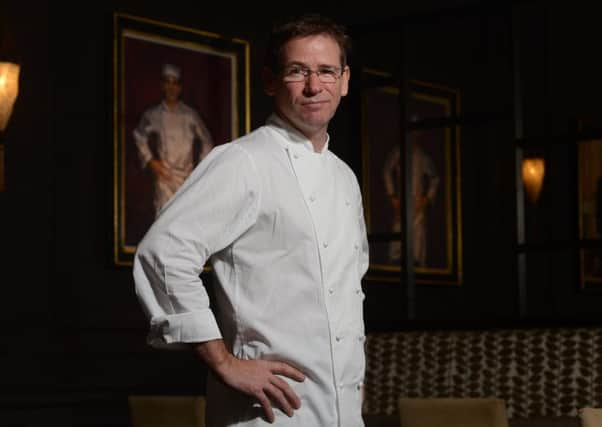Stephen Jardine: Is the Michelin guide biased against Scottish food?


Nicola Sturgeon last month launched a new tourism strategy to help grow the Scottish economy by£1 billion.
The industry-led Food Tourism Scotland Action Plan aims to boost the sector through a range of measures to connect visitors with food. “Scotland is already renowned as the land of food and drink with our quality produce known throughout the world,” said the First Minister. With visitors already spending £1bn a year on our food and drink, they clearly love what we offer. If only the restaurant industry bible felt the same. This week the Michelin Guide for 2019 was unveiled and it didn’t take long for Scottish chefs to digest the contents. No new stars for Scotland this year. In fact, thanks to three deletions from the list, Scotland now has just eight restaurants with one star, the lowest total in years, and one with two.
Advertisement
Hide AdAdvertisement
Hide AdIn contrast, a record 21 new stars were awarded in England and Ireland. With restaurants like Cail Bruaich and The Gannet delighting critics and customers in Glasgow, the absence of any Michelin stars in our biggest city remains a profound mystery but is a wider myopia at work? Does Michelin have a blind spot for Scotland?
One chef who was hopeful this week is convinced that is the case. “It is almost as though Scotland does not exist. It is staggering,” they told me.
On paper it does look odd. Inver, Castle Terrace, Aizle, The Three Chimneys, The Torridon and Isle of Eriska all had good reasons to be optimistic. With great young chefs cooking at the top of their game and wowing reviewers, they appear to tick all the boxes. Except when it comes to the mysterious formula required by Michelin.
Even chefs who did make it queued up to question the decisions made this year calling them “frustrating” and “very disappointing”. So what is the problem? Could it be a deep-rooted prejudice dating back to the bad old days when fine dining in Scotland was more tatties than tasting menus? Or are the exciting developments in restaurants here just going unnoticed?
Two leading restaurant owners traditionally on the Michelin radar told me they are convinced they weren’t even inspected this year. Although inspectors book anonymously and pay their own bills, some then reveal their presence after eating. Others don’t but spotting them in remote rural parts of Scotland isn’t exactly rocket science. Despite the criticism this year, Michelin insist Scotland isn’t getting a raw deal. “There hasn’t been a change in the inspection process. We make an announced visit about every 18 months, and we certainly don’t have a blind spot when it comes to Scotland. There are some excellent restaurants there, and the team covers the length and breadth of Scotland to make sure we are absolutely confident in our selection,” said Rebecca Burr, director of the Michelin Guide Great Britain and Ireland.
But a lot can happen in 18 months. Restaurants have launched, been savaged by TripAdvisor and closed far faster than that. If a week is a long time in politics, 18 months is an eternity in the world of food. Michelin needs to put its foot down and get up to speed with Scotland’s food and drink journey.